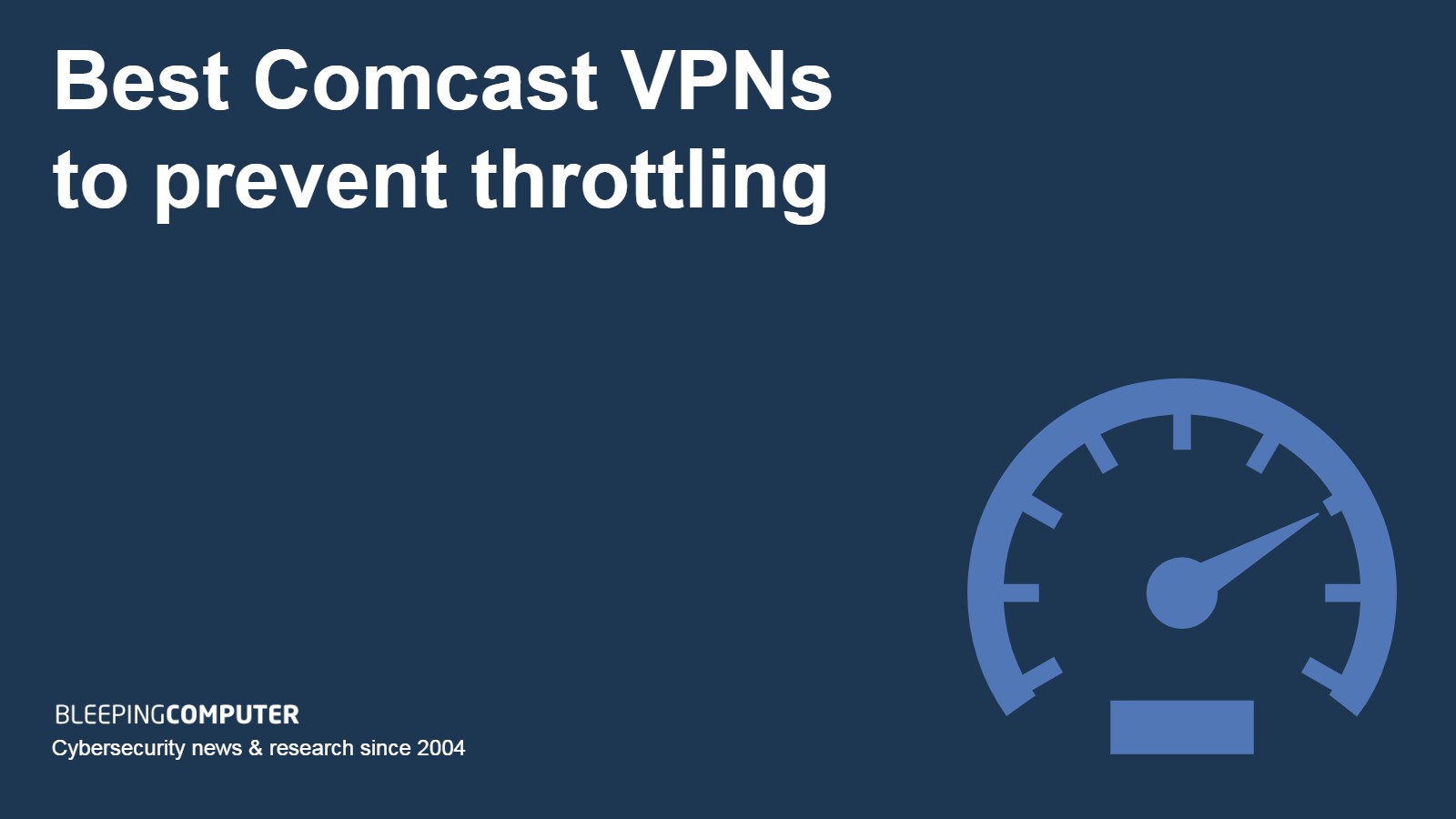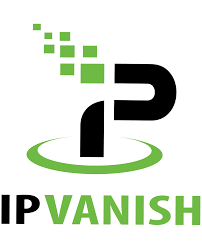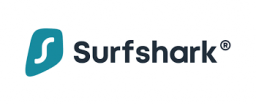Using a VPN is the most effective way to overcome ISP throttling with companies like Comcast. This guide includes the best VPNs for Comcast and instructions on how to use them.
Comcast has a history of restricting users’ bandwidth. In 2007, the US Federal Communication Commission (FCC) stated that Comcast’s network management practices had "significantly impeded consumers' ability to access the content and use the applications of their choice".
Although the company has said it no longer restricts P2P – or any other – traffic, some users still claim that it throttles their connections. The best VPNs prevent this practice by encrypting users’ traffic so that ISPs like Comcast cannot see which websites and apps users are visiting.
A virtual private network (VPN) has the additional benefit of allowing users to change their virtual location. This is made possible by routing users’ traffic through a VPN server before joining the internet proper. Users can connect to any server in the VPN provider’s network – which in some cases can comprise almost 10,000 machines.
We’ll examine individual VPN providers in more detail later. For now, here’s a summary of our top choices.
Best VPNs for Comcast:
- NordVPN: Our recommended VPN for Comcast. Has 1,970+ RAM-only servers in the US providing very fast connection speeds. Allows one-click access to the Tor network and can bypass Chinese blocks. Plans come with a risk-free 30-day money-back guarantee.
- Surfshark: Best budget VPN for Comcast. Subscriptions include unlimited device connections and access to RAM-only servers in 25+ US cities. Its obfuscation works in China and static IP addresses are available in the US.
- ExpressVPN: Speedy RAM-only servers available in 15+ US cities and Santa Monica. Great for streaming and has its own site on the Tor network. Obfuscation enables connections in China and is enabled by default. Dedicated app available for routers.
- PrivateVPN: Independent provider with servers in 12+ US cities. Works well with all major streaming platforms and allows port forwarding for improved torrenting. Connection speeds are fast enough for streaming video in 4K.
- CyberGhost: Notably fast connection speeds and RAM-only servers in 11+ US cities. Strong encryption and servers optimized for gaming, torrenting, and individual streaming platforms. Has an audited no-logs policy.
- IPVanish: Has very fast servers in 20+ US cities that are ideal for Comcast users. It owns the majority of its network hardware and has an independently audited no-logs policy. Subscriptions include unlimited device connections.
- AtlasVPN: Has servers in seven US cities that provide the fastest speeds for Comcast users. Works with all major streaming platforms and allows unlimited device connections. Its SafeSwap servers can rotate users’ IP addresses in-session.
Summary Table
| No value | TEST WINNER | No value | No value | No value | No value | No value | No value |
| No value |
NordVPN
 www.nordvpn.com www.nordvpn.com
|
Surfshark
 www.surfshark.com www.surfshark.com
|
ExpressVPN
 www.expressvpn.com www.expressvpn.com
|
PrivateVPN
 www.privatevpn.com www.privatevpn.com
|
CyberGhost
 www.cyberghost.com www.cyberghost.com
|
IPVanish
 www.ipvanish.com www.ipvanish.com
|
Atlas VPN
 www.atlasvpn.com www.atlasvpn.com
|
| Ranking | 1 | 2 | 3 | 4 | 5 | 6 | 7 |
| US servers | 1970+ | 600+ | 15 cities | 12 cities | 1356 | 1106 | 7 cities |
| Ave Speed (US) | 100+ Mbps | 100+ Mbps | 100+ Mbps | 94 Mbps | 100+ Mbps | 100+ Mbps | 100+ Mbps |
| Simultaneous Connections | 6 | Unlimited | 5 | 10 | 7 | Unlimited | Unlimited |
| Devices Supported | Windows, MacOS, iOS, Android, Linux, Smart TVs, Routers | Windows, MacOS, iOS, Android, Linux, Smart TVs, Routers | Windows, MacOS, iOS, Android, Linux, Smart TVs, Routers | Windows, MacOS, iOS, Android Amazon Fire TV | Windows, MacOS, Linux (command line), iOS, Android, Amazon Fire TV | Windows, MacOS, iOS, Android Amazon Fire TV | Windows, MacOS, iOS, Android, Linux Android TV, Amazon Fire TV |
| Best deal (per month) | $3.39 SAVE 63% + FREE months |
$2.30 84% off 2yr plan |
$6.67 Save 49% |
$2.00 SAVE 85% on 3yr plan |
$2.11 SAVE 83% |
$2.50 SAVE 77% |
$1.83 SAVE 83% |
So how do we arrive at the above selection? After all, there are literally hundreds of VPNs available. To find the best, we compare providers against a list of criteria. These are summarized below and expanded upon later in the article where we discuss our testing methodology in more detail.
- Servers in the US
- Fast connection speeds
- Good for streaming
- Strong privacy and security features
- Good value for money
- Helpful customer support
To be included as one of our top three providers, we additionally require VPNs to have a RAM-only server network, independently audited software and infrastructure, effective obfuscation, and a location beyond the reach of cross-border spying alliances.
Get a risk free trial
NordVPN offers a risk-free 30-day trial so you can sign up here with zero risk. You can use the VPN rated #1 on this list with no restrictions for a full month.
There are no hidden terms - just contact support within 30 days if you decide NordVPN isn't right for you and you'll get a full refund. Start your NordVPN trial here .
Best VPNs for Comcast
Now let’s explore each of our recommended providers in a little more detail:
1. NordVPN

NordVPN has a solid US presence, with 1,970+ RAM-only servers spread across the country. Connection speeds are impressively fast and strong encryption ensures that Comcast cannot harvest user data while online.
Security features include the company’s NordLynx protocol, which doesn’t require customer data to be stored on its servers, and one-click access to the Tor network. MultiHop servers are available, as is obfuscation that enables connections in China.
The provider works seamlessly with all major streaming platforms and its SmartPlay tool helps VPN-incompatible devices like smart TVs access region-locked content.
Well-designed apps are available for Windows, macOS, iOS, Android, Amazon Fire TV, and Linux. These come with built-in leak protection; a kill switch; split tunneling; and a Threat Protection tool that automatically blocks ads, trackers, and malware.
Some NordVPN features have been made free for anyone to use – regardless of whether they have a subscription. These include an open-source VPN speed-testing tool and the Meshnet tool, which is used for the creation of private user-created networks.
NordVPN’s server network is available in 60+ countries and has been RAM-only since a 2018 attack on a third-party data center in Finland prompted a change in company policy. The provider is in the process of colocating its servers, which involves buying them outright – rather than renting them – and housing them in purpose-built data centers.
NordVPN has had its no-logs policy verified through multiple audits of its server network and software.
Pros:
- RAM-only servers in 16+ US cities
- Works with popular streaming platforms
- Very fast connection speeds
- One-click access to Tor network
- Obfuscation enables connections in China
- Audited no-logs policy
Cons:
- Low device connection limit
- Data breach in 2018
BEST VPN FOR STREAMING: NordVPN is our recommended provider. It has 1,070+ RAM-only servers in the US and is fast enough for watching video in 4K. Provides robust security and great streaming ability. Plans come with a risk-free 30-day money-back guarantee.
Read our full review of NordVPN.
2. Surfshark

Surfshark has reasonably priced subscriptions and plenty of server options for Comcast customers. It has a presence in 25+ US cities as well as RAM-only servers in a further 99+ countries.
The company’s Nexus technology can rotate users’ IP addresses in-session and allows them to specify entry and exit servers for MultiHop connections. Access to numerous US-based static IP addresses is included with subscriptions. You can simultaneously connect as many devices as you wish.
Apps are easy-to-use and available for Windows, macOS, iOS, Android, Amazon Fire TV, and Linux. They all come with a full GUI, built-in leak protection, and 256-bit encryption. Other features include a Camouflage mode that obfuscates traffic so that it can bypass Chinese blocks.
Surfshark works with a host of streaming platforms, including Netflix, Amazon Prime Video, HBO, BBC iPlayer, and Hulu. Speeds are easily fast enough to stream in 4K and the company has a smart DNS service for devices that does not natively support VPN software.
Independently audited browser extensions are available for Chrome, Edge, and Firefox. These provide more granular control over CleanWeb – Surfshark’s combined ad, tracker, and malware blocker.
The company adheres to a strict no-logs policy that has been independently verified through an audit of its server network. As of 2022, Surfshark joined forces with Nord Security – NordVPN’s parent company – though it claims to continue to operate autonomously.
Pros:
- RAM-only servers in 25+ US cities
- Works with all major streaming platforms
- Unlimited device connections
- Rotating IP addresses
- GUI for Linux
- Audited zero logs policy
Cons:
- GPS spoofing only available for Android
- No longer independent
GREAT VALUE: Surfshark allows unlimited device connections and can consistently access streaming platforms. It has RAM-only servers in 25+ US cities and can rotate users’ IP addresses in-session. Plans come with a 30-day money-back guarantee.
Read our full review of Surfshark.
3. ExpressVPN

Well-known for providing robust security, ExpressVPN is great for Comcast customers who want the highest levels of service and don’t mind paying a little more to get it.
Features include the company’s Trusted Server technology, which entails reinstalling RAM-only operating systems on every server in the network. ExpressVPN has a dedicated site on the Tor network for more secure signup, and connections are obfuscated by default.
RAM-only servers are available in 105+ countries, and the company has a presence in 15+ US cities. Speeds are very fast, primarily thanks to ExpressVPN’s proprietary Lightway connection protocol.
The provider works with all major streaming platforms and is able to access a host of Netflix content libraries. It has a MediaStreamer tool for helping devices like games consoles and smart TVs bypass geo-restrictions.
Sophisticated apps are available for Windows, macOS, iOS, Android, Android TV, Nvidia Shield, Amazon Fire TV, and Linux. These come with built-in leak protection, 256-bit encryption, and a Threat Manager Tool.
ExpressVPN is relatively unusual in that it also makes an app for routers. This enables users to easily configure a VPN connection on their home router to protect every device on their network – regardless of whether it's independently compatible with VPN software.
In 2021, ExpressVPN was bought by cybersecurity company Kape Technologies. The purchase was viewed with suspicion in some quarters due to Kape’s history – it was formerly known as Crossrider – of creating software designed to inject adverts into users’ browsers.
For its part, ExpressVPN has said that it will remain a separate service from other Kape brands. It has since had audits of its software and infrastructure that have verified its no-logs policy.
Pros:
- RAM-only servers in 15+ US cities
- Very fast connection speeds
- Works with all major streaming platforms
- Obfuscation enables connections in China
- Audited no-logs policy
- Onion site available
Cons:
- Relatively expensive
- Owned by Kape Technologies
TRUSTED SERVERS: ExpressVPN has a proprietary connection protocol providing very fast connection speeds, RAM-only servers in 15+ US cities, and a dedicated Onion site on the Tor network. Plans come with a 30-day money-back guarantee.
Read our full review of ExpressVPN.
4. PrivateVPN

PrivateVPN is an independent and commendably transparent provider. It’s a good option for Comcast customers, with servers in 12+ US cities.
The service is fast enough for streaming video in 4K and works with several major streaming platforms, including Netflix, Hulu, Amazon Prime Video, BBC iPlayer, Disney+, and ITVX.
Features include built-in leak protection, app-specific and system-wide kill switches, and access to SOCKS5 and HTTP proxies. Its stealth mode enables connections in China and other countries where online censorship is rife.
PrivateVPN allows port forwarding, which makes seeding and leeching more efficient when torrenting. P2P-optimized servers are available to better cope with large file transfers.
The company has apps for Windows, macOS, iOS, Android, and Amazon Fire TV. Users have the option to change the level of encryption used on their data to improve connection speeds. They can also switch between connection protocols.
PrivateVPN has great customer service that is able to provide remote control assistance if needed. This is especially useful when attempting to configure router connections.
The company has a clearly defined no-logs policy – though it has yet to be independently audited. Network security is improved by the provider acting as its own server host and ISP.
Pros:
- Servers in 12+ US cities
- Decent connection speeds
- Good access to popular streaming platforms
- Stealth mode bypasses Chinese blocks
- Port forwarding improves torrenting
Cons:
- Small server network
- Privacy policy not audited
STEALTH MODE: PrivateVPN has servers in 12+ US cities and works well for streaming and torrenting. Its stealth mode is able to bypass VPN blocks in China and it allows port forwarding. Plans come with a 30-day money-back guarantee.
Read our full review of PrivateVPN.
5. CyberGhost

CyberGhost has a vast network of RAM-only servers and extremely fast connection speeds. Comcast customers can get the fastest speeds by connecting to one of the company’s extensive network of 2,100+ US servers.
CyberGhost has servers optimized for individual streaming platforms as well as for gaming and torrenting. This makes the trial-and-error approach to finding a connection unnecessary. Windows-users can specify which apps they want to automatically connect to these servers.
Features shared by all apps include strong encryption; a kill switch; DNS, IPv6, and WebRTC leak protection; and 24/7 customer support. Split-tunneling is only available for Android, as is automatic WiFi protection.
CyberGhost does not offer MultiHop servers or obfuscation – look to one of our other recommended providers for these. It does offer access to NoSpy servers with yet faster speeds, extra bandwidth, and a dedicated uplink – but this is a paid add-on.
The CyberGhost GUI is approachable and seemingly light-hearted. It’s available for Windows, macOS, Linux, iOS, Android, Amazon Fire TV, and Apple TV apps.
CyberGhost is owned by Kape Technologies – a company with a poor history with regards to privacy. Reassuringly, CyberGhost has had independent audits of its server network and management systems, which have verified its no-logs policy. The company issues quarterly transparency reports where it details any third-party data requests.
Pros:
- RAM-only network of servers in 11+ US cities
- Very fast connection speeds
- Platform-optimized servers for streaming
- Audited no-logs policy
Cons:
- Automatic WiFi protection only available for Android
- Smart Rules only available for Windows
FAST CONNECTIONS: CyberGhost is tailor-made for streaming and has notably fast connection speeds. RAM-only servers are available in 11+ US cities and the company has an audited no-logs policy. Plans come with a 45-day money-back guarantee.
Read our full review of CyberGhost VPN.
6. IPVanish

IPVanish is a US-based provider that owns the majority of its network hardware. Comcast customers can make the most of its market-leading connection speeds by connecting to any one of the 20+ US cities in which IPVanish hosts servers.
Subscriptions include unlimited device connections, which makes the provider a good option for larger households. Other features include split tunneling, automatic start-up, a kill switch, access to a SOCKS5 proxy, and built-in DNS leak protection.
Supported platforms include Windows, macOS, iOS, Android, ChromeOS, and FireTV. IPVanish doesn’t have a Linux app, though a connection can be configured manually.
The service works with the majority of big-name streaming platforms, but you’ll need to look elsewhere to access BBC iPlayer.
While connected, users’ internet data is protected using a combination of 256-bit encryption, SHA512 for authentication, and a DHE-RSA 2048 key exchange. The lightweight WireGuard connection protocol is used by default, though users can opt for OpenVPN, IKEv2, or IPSec if preferred.
While under previous ownership, IPVanish had provided the US Department of Homeland Security with data logs relating to one of its customers – despite claims that it kept none. This happened in 2016, and the company has changed ownership several times in the interim. More importantly, IPVanish has since had its no-logs policy audited by the Leviathan Security Group.
Pros:
- Servers in 20+ US cities
- Very fast connection speeds
- Unlimited device connections
- Independently audited no-logs policy
Cons:
- Based in US
- Has logged customer data under previous ownership
FAST SPEEDS: IPVanish offers unlimited device connections and access to servers in 20+ US cities. It owns the majority of its network hardware and has an audited no-logs policy. Plans come with a 30-day money-back guarantee.
Read our full review of IPVanish.
7. Atlas VPN

Atlas VPN is relatively new to the VPN industry, though it has already established itself as one of the top providers in terms of connection speeds. These are easily fast enough for intensive online gaming and watching video in 4K.
The service works with all of the major streaming platforms, including Netflix, Hulu, Amazon Prime Video, Disney+, and BBC iPlayer. The company doesn’t have a particularly large server network, though the US is well-represented. Comcast customers seeking the speediest connections can choose between servers in seven US cities.
Apps are available for Windows, iOS, Android, macOS, Linux, Android TV, and Amazon Fire TV. These come with built-in DNS and IPv6 leak protection, a kill switch, split-tunneling, a tracker-blocker, and a data breach monitor.
Subscriptions include unlimited device connections and access to Atlas VPN’s Safe Swap technology. This can rotate IP addresses in-session as well as provide MultiHop connections with randomized exit servers.
While connected, Atlas VPN protects users’ traffic with ChaCha20 encryption for WireGuard and 256-AES encryption for IKEv2. Note that the company doesn’t offer the OpenVPN protocol.
Atlas VPN is based in the US, which is less than ideal in terms of privacy. However, it does have a no-logs policy that’s been verified through independent audits.
Pros:
- Servers in seven US cities
- Fast connection speeds
- Unlimited simultaneous connections
- MultiHop servers available
Cons:
- Based in the US
- Not independent
- No router support
STRONG ON SECURITY: Atlas VPN is very fast, with excellent streaming capabilities. It has servers in seven US cities and offers unlimited device connections and an audited no-logs policy. Plans come with a 30-day money-back guarantee.
Read our full review of AtlasVPN.
Methodology for choosing the best Comcast VPNs
While most subscription-based VPNs will be able to prevent Comcast throttling users’ connections, far fewer are capable of meeting our other requirements. Using our testing methodology, we compare providers against a list of specific criteria. You can read about each element in this list below.
- Servers in the US: For the fastest speeds, Comcast customers should connect to a VPN server near them. The best VPNs have servers throughout the US – connecting to one of these ensures that data does not have to travel excessive distances.
- Fast connection speeds: If you’ve paid for one of Comcast’s more expensive broadband packages, the last thing you want is for your VPN to noticeably slow your connection down. We regularly test VPN speeds to find the fastest providers. We only recommend those that can at least stream HD video without buffering. We've tested the average speeds for each VPN listed above.
- Good for streaming: Many people are attracted to VPNs for their ability to access geo-restricted content. Unfortunately, very few providers actually work with big-name streaming platforms. We test which providers can access Netflix content libraries as well as platforms such as Amazon Prime Video, Hulu, BBC iPlayer, and Disney+.
- Strong privacy and security features: As the Snowden leaks demonstrated, the US routinely engages in mass surveillance. A VPN can help prevent some of your information from being caught up in dragnet operations, but only if it can offer strong encryption, a true no-logs policy, leak protection, and a kill switch. VPN services should ideally also include access to MultiHop servers, split tunneling, obfuscation, and port forwarding.
- Good value for money: VPNs vary in both price and quality. Low-cost VPNs aren’t necessarily bad, while expensive services aren’t necessarily good. Our aim is to find the best examples at a range of price points.
- Helpful customer support: If you’re signing up for a 12+ month subscription, it’s good to know that your chosen VPN service is backed by a knowledgeable and helpful customer support team. We look for providers that offer 24/7 live chat as well as email support. This should be supplemented by a well-stocked and up-to-date online knowledge base.
Bonus points
To make it to one of our top three positions, VPN companies must additionally offer the following features:
- Access to China: The Chinese state has been blocking VPNs for the past decade. It has become so proficient that very few VPN services now work inside the country. Those that do are highly valued – both in China and in other similarly restrictive countries.
- Diskless servers: The better VPN providers only use RAM-only servers in their networks. Because these are wiped clean of data at every reboot, they pose less of a security risk than servers using magnetic disk drives or solid-state drives that must be actively overwritten. RAM-only servers’ lack of long-term storage means they are less likely to be attacked or seized by government-sanctioned agencies.
- Incorporation outside the scope of intelligence alliances: The existence of international intelligence-sharing alliances like the Five Eyes and Maximator isn’t disputed. These groups allow countries to circumvent their own national data privacy laws by having other members of the alliance do the work for them. It’s an underhanded way of conducting mass surveillance and one that reputable VPNs try to avoid being co-opted by. The most effective way to achieve this is by incorporating their companies in countries like Panama and the British Virgin Islands, which fall outside the purview of recognized alliances.
Can I use a free VPN for Comcast?
You can, but we wouldn’t recommend it. Free VPNs can severely restrict your connection speeds – far more than Comcast ever will. The problem is that they have too-small server networks for the large numbers of people trying to use them. The resulting congestion reduces connection speeds to a crawl. Slow internet speeds are a given with most free providers.
Free VPNs fare poorly in terms of privacy and security. Most have some form of logging policy, which means that the VPN will be collecting your data rather than Comcast. The worst free VPNs may not even encrypt traffic, enabling both Comcast and the VPN service to harvest your data and sell it.
The same goes for many Internet Service Providers, combining slow speeds with questionable security. You're also likely to have issues when accessing streaming services while using a free VPN.
How to use a VPN with Comcast
It’s easy for Comcast customers to use a VPN. Just follow these steps:
- Choose a fast VPN with servers in the US. We recommend NordVPN.
- Sign up for a subscription. Note that longer terms are almost always better value.
- Download and install the relevant app for your device.
- Restart the device once installation is complete.
- Open the newly installed app and choose a server from the country list. The servers nearest to you usually provide the fastest connections.
- Click the “connect” button.
- Wait until the app tells you that a connection has been established.
- Use the internet as normal, but with a private and secure connection.
How to check if your Comcast speeds are slow
There's a possibility that internet connections provided by Comcast are being throttled, whether it's due to network congestion or a fair usage policy. The easiest way to check if you're being throttled by Comcast is to connect to a VPN server and run a speed test. If speeds are faster while connected to the VPN, it's likely that you're being throttled to some extent.
Best VPNs for Comcast – FAQs
Is it legal to use a VPN with Comcast?
Yes, VPNs are legal throughout the US and Comcast is a US-based service. Comcast’s website states that:
“You can use a Virtual Private Network (VPN) connection just as long as it’s for your personal, non-commercial use, and it doesn’t violate our applicable terms of service and policies.”
Comcast xFi Complete customers can use the Xfinity VPN on mobile devices. This limited service provides protection when devices connect to an unsecured WiFi network. To use it, enable Advanced Security through the Xfinity app. This will install a VPN profile on compatible Android or iOS mobile devices.
Does Comcast throttle bandwidth?
Comcast has been free to throttle at will since the repeal of the Open Internet Order in 2017/2018 – though various states have since brought in their own laws to protect net neutrality. For example, New Jersey, Washington, and California have all made it illegal for ISPs to slow down or block select online content. Comcast is working with other large ISPs to try and ban net neutrality in the states where it exists.
A 2022 bill created by US lawmakers may be able to prevent throttling on a country-wide level if successful. The Net Neutrality and Broadband Justice Act is an attempt to reclassify broadband as a telecommunications service. This would give the FCC the ability to reinstate rules against throttling, blocking, or paid prioritization.
Does Comcast sell my data?
The rules restricting Comcast from collecting and selling user data were removed by the repeal of the Open Internet Order. While many states have subsequently created their own legislation that prevents ISPs like Comcast from harvesting data, the majority haven’t. Comcast can collect its customers’ browsing data – which can contain everything from search requests to products purchased – and sell it to advertisers or data brokers.
To prevent this from happening, Comcast customers can use a VPN while online. All of our recommended providers use strong encryption that prevents Comcast from being able to see which websites are being visited and what you’re doing while there.
Can a VPN bypass Comcast data caps?
No, a VPN encrypts traffic but cannot hide its existence. Comcast is still able to see the volume of traffic passing through its servers when customers are connected to a VPN. If you exceed a data cap, Comcast will know about it and charge accordingly.
Comcast’s Xfinity customers are automatically given 1.2TB of data a month – unless they’ve chosen an unlimited plan. Users who exceed 1.2TB have blocks of 50GB automatically added to their account for an additional fee of $10 each plus tax. Comcast doesn’t charge users the first time they exceed their allowance.

Post a Comment Community Rules
You need to login in order to post a comment
Not a member yet? Register Now